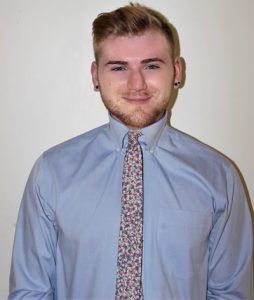Written by Rachel Goldsmith Turow
Reviewed by Kevin Jeffrey Goldwater, New York University
So appropriately stated on the back cover of Mindfulness skills for trauma and PTSD is “by working skillfully with our challenges, we can each reduce suffering and build lasting strengths.” It is exactly this that author Rachel Goldsmith Turow preaches in her newly published book, full of resources to combat daily challenges faced by survivors of trauma and PTSD. With detail and patience, Turow guides her reader towards cultivating a better self after trauma.
Turow begins her book by introducing mindfulness. Turow thoroughly goes over each aspect of mindfulness, explaining everything from its core concepts to the proper time and setting for practices. Included is ‘Resolving misconceptions and overcoming stumbling blocks’ to encourage further practice and ability, but perhaps the most significant portions of this chapter are the parts of “Special Considerations for Practicing Mindfulness After Trauma” and “Choosing a Specific Practice.” The parts begin a trend that moves throughout the book, encouraging careful and safe practice for survivors especially and consideration that not all practices work for everyone; indeed, she has her reader explore specially for themselves, rather than a prescribed program. The next chapter discusses Trauma and PTSD as concepts, delving into core meanings, differentiating types and the effect each has on its host. Turow expands beyond just explaining the basics of the two phenomena, going further into explaining and discussing healing and support in relation to them. She continues to introduce in the next chapter basic, core mindfulness skills generalized for various symptoms. The following chapters then each focus on an individual set of skills for different issues, including self compassion, intrusive thoughts/traumatic memories/nightmares, fear/hypervigilance/hyperarousal, avoidance, shame/self-blame/self-criticism/anger/guilt, depression, numbing, dissociation, and relationships. Turow concludes with the explanation and discussion of post traumatic growth and the phenomenon of resilience, proving the value of her work and the patient’s future.
One of the most notable aspects of Turow’s book is her inclusion of research and “in their own words” features littered throughout the book. These portions from researchers, colleagues and friends of Turow’s provides support of and strengthens the presence of the skills, giving evidence of the value of the skills described in the book. Turow’s approach to teaching has a voice of kindness and patience, creating a guidebook that is a not a bulleted instruction piece but rather a comforting resource. Turow’s book also clarifies the purpose of the skills is not simply fixing the problem rather healing and moving forward (the cover of her book even being once broken pottery healed with gold lining), constantly promoting the forward thinking mindset. While each chapter has an independent theme, they each rely on the first chapter of basic skill sets. Without these, Turow would lose the reader and confusion would ensue.
Built for survivors, friends and family, teachers, students and practitioners, this book is easy to read and comprehensive in nature. Turow’s skills are easy to learn and backed up with evidence from research and personal experiences, fostering an environment of potential. With its successful introduction of skills for trauma survivors, Turow’s book earns its place in the psychological zeitgeist.
Kevin Jeffrey Goldwater studies Applied Psychology with a minor in music at New York University and is set to graduate in May of 2019. Born in Chicago, Kevin has done immersive research on psychoanalytic theory and the role of gender in today’s media. In addition to writing for SPT, he writes reviews for the International Journal of Psychotherapy.
Rachel Goldsmith Turow, PhD, living in Seattle, Washington, is an adjunct assistant professor at the Icahn School of Medicine at Mount Sinai and is a clinical psychologist at Seattle University.







